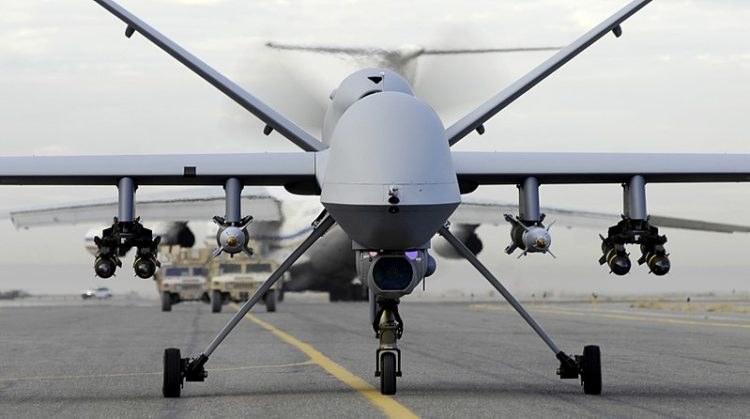The United States confirmed on Saturday that five Al-Shabaab terrorists were killed in a drone strike.
The U.S. Africa Command (AFRICOM), in a statement, said that the latest drone strike, which targeted the fighters of the terrorist group, was conducted in the vicinity of Bush Madina in the Bay region of southern Somalia and did not injure or kill any civilians.
U.S. Marine Corps Brigadier General Bradford J. Gering, AFRICOM’s deputy director of operations said in a statement, “It’s our command’s responsibility to support our partners so this terrorist group can’t expand and strike the U.S. homeland as its leaders desire to do.”
AFRICOM added in their statement that, “we currently assess no civilians were injured or killed as a result of this airstrike.”
This drone strike was the 34th conducted this year in Somalia. It consisted of two strikes conducted on April 2-3. Because of the increased pressure that the Somalian military, backed by U.S. airpower, has put on the terrorists, they’ve lost control of much of the countryside that they once occupied. They’re now conducting more high-profile terror attacks in Somalian cities, such as Mogadishu.
The U.S. has been steadily ramping up the pressure on the terrorist group. After conducting 47 airstrikes against Al-Shabaab in 2018, the U.S. conducted 63 a year ago; the current pace of air operations is ahead of that total.
In January, the terrorist group hit an American airfield in Manda Bay, Kenya that killed three Americans. It also attacked the Baledogle airbase in Somalia, which houses American Special Operations Forces.
Since then, the U.S. has upped its operational tempo and in February, a senior Al-Shabaab leader, Bashir Mohamed Mahamoud, thought to be behind the attack on U.S. and Kenyan forces in Manda Bay, was killed in an airstrike in Somalia.
American Special Operations Forces are also advising, assisting, and accompanying Somalian units into the fight against the terrorist group.
“AFRICOM and our international partners recognize that stability in Somalia will not be achieved through purely military means. It requires providing programs and opportunit[ies] for the Somali people,” General Gering said in a statement. And he continued:
“In support of the Federal Government of Somalia, U.S. forces will use all effective and appropriate methods to assist in the protection of the Somali people, including partnered military counterterrorism operations with the Federal Government of Somalia and Somali National Army forces. Together with the partner and allied forces, U.S. Africa Command works on a daily basis to improve security conditions to enhance governance and economic development.
Already have an account? Sign In
Two ways to continue to read this article.
Subscribe
$1.99
every 4 weeks
- Unlimited access to all articles
- Support independent journalism
- Ad-free reading experience
Subscribe Now
Recurring Monthly. Cancel Anytime.
U.S. Africa Command continues to work with its Somali partners to transfer the responsibility for long-term security in Somalia to the Federal Government of Somalia and its Member States.”
Additionally, on April 1, after AFRICOM pledged to publish quarterly reports on the status of its internal investigations into reported civilian casualties as a result of the airstrikes, Amnesty International, which accused the U.S. of “zero accountability”, said it was long past due.
“This is a welcome, though long overdue, step towards providing truth and accountability for the victims of U.S. airstrikes and their families in Somalia and beyond. It’s shocking that it has taken more than a decade of AFRICOM’s secret air war in Somalia for this to happen,” Deprose Muchena, Amnesty International’s Director for East and Southern Africa, said.










COMMENTS